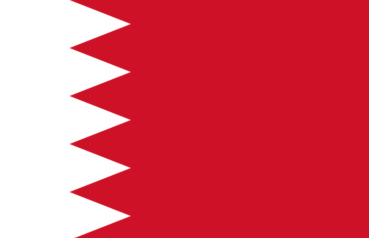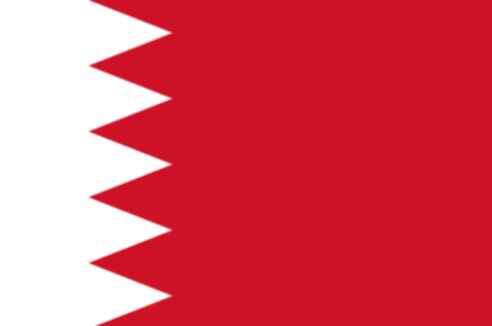Bahrain
Bahrain


Located in the Persian Gulf, the tiny island nation of Bahrain has a history that spans many centuries. It has gained notoriety due to its advantageous position, lively culture, and prosperous economy. From its ancient past to its current standing as a prominent actor in the global economy, Bahrain has a rich history that we shall cover in this essay.
Back in the Stone Age and Before:
There is evidence from excavations that people were living in Bahrain as early as 5000 BC. Dilmun civilisation was the first to develop in the area, and it thrived from around 3000 to 2000 BC. The Dilmun were expert merchants who kept an extensive network of trade routes in the Persian Gulf area running smoothly, linking the continents of Mesopotamia and India with eastern Arabia. Their advanced irrigation systems allowed them to grow crops in the dry climate of the desert.
The Tylos civilisation developed in its place after the Dilmun culture collapsed approximately 2000 B.C. The people of Tylos were significant participants in ancient commerce networks due to their nautical knowledge and abilities. The pearl industry they created provided them money and prestige.
Persians and Greeks:
In the sixth century B.C., the Achaemenid Empire, which governed most of the Middle East, exerted its influence over Bahrain. The Seleucid Empire came after the Achaemenids, and it was eventually overthrown by the Parthians. In the third century A.D., the Persian Sassanid Empire, which at the time governed most of the Middle East and Central Asia, conquered Bahrain.
Bahrain was a major commercial and cultural hub at this time. Located on the island’s northern shore, the city of Muharraq attracted merchants and academics from all over the Middle East and beyond. Bahrain also developed into a major hub for Shi’a Islam, a sect of Islam that places special emphasis on the Imams.
Islam’s Golden Age:
Bahrain fell to the Arab Muslim troops that conquered the Middle East under the Caliphate of Umar in the 7th century AD. As a result, Islam rapidly spread over the island, and Bahrain eventually became a major center for Islamic learning and culture.
Throughout the Islamic Golden Age (the eighth to thirteenth centuries), Bahrain served as a major hub for international trade and learning. Arab and Persian dynasties like as the Umayyads, Abbasids, and Buyids all had a turn at ruling the island. The Qarmatians, a Shi’a Muslim sect, captured Bahrain in the 10th century and created a utopian kingdom there. The Qarmatians were recognized for their rejection of conventional Islamic leadership and their commitment to egalitarian values.
The Mongols, invading the Middle East and Central Asia in the 13th century, conquered Bahrain. The Mongol period was tumultuous and violent, with competing groups on the island always vying for control. The Shi’a Muslim Jarwanid dynasty built a unified, powerful administration in Bahrain in the 14th century.
Western Europeans and Middle Easterners:
The Portuguese colonized Bahrain in the 16th century, establishing a garrison there in an effort to dominate the pearl trade. When Persians invaded Bahrain in the early 17th century, they drove off the Portuguese. The Safavid dynasty, which was in control of Persia at the time, modernized the island’s infrastructure and formed a powerful, centralized administration.
The Al Khalifa succeeded in expelling the Persians from Bahrain.
Bahrain has always been a place where people of many different backgrounds can come together. However, racism and prejudice are still problems in Bahrain, just as they are in many other nations.
When Bahrain was a British protectorate in the early 20th century, racism first emerged. Workers from India and others were recruited by the British government to work in the oil fields, contributing to the country’s increasingly diversified population. However, this exacerbated already existing racial tensions.
Many African slaves, transported to the island by Arab traffickers in the 1920s and 1930s, lived in Bahrain. Although slavery was abolished legally in Bahrain in 1937, its effects can still be seen today. Slave descendants, most of whom are Afro-Arabs, have not been freed from prejudice and marginalization.
Bahrain’s struggle for independence from Britain sparked a period of political upheaval in the 1950s and 1960s. The Sunni Muslim minority in Bahrain’s government discriminated against the Shiite Muslim majority because of the latter’s perceived danger to the former. Poverty and social discontent increased among the Shiite minority because they were shut out of government positions and other possibilities.
The discovery of substantial oil reserves fueled an economic boom in Bahrain in the 1970s and 1980s. Many Bahrainis have seen an increase in their level of life because to the government’s investments in infrastructure and education. However, sectarian tensions between Sunni and Shiite populations also rose during this time.
The Shiite majority in Bahrain requested more civil and political rights in the 1990s, leading to a period of political instability. The government’s response of arresting activists and cracking down on dissent only helped to incite further violence.
There has been some improvement in Bahrain’s response to prejudice and racism in recent years. A sizable section of the country’s population is comprised of migrant workers, hence the government has passed legislation to safeguard their interests. There have been government efforts to alleviate Shiite community concerns and foster religious tolerance.
سلام, مرحبا, شكرا, نعم, لا, أنا, أنت, هو, هي, نحن, أنتم, هم, الله, مسجد, كتاب, مدرسة, جامعة, مستشفى, دكتور, ممرضة, صحة, طبيب, أم, أب, أخ, أخت, عم, عمة, خال, خالة, ابن, ابنة, صديق, صديقة, عمل, دراسة, مدينة, شارع, بيت, سيارة, حافلة, قطار, طائرة, مطار, محطة, مطعم, طعام, شراب, ماء, مكتب, عملة, دولار, دينار, ريال, يورو, مركز, معلومات, تلفزيون, راديو, صحيفة, مجلة, جريدة, فيلم, أغنية, موسيقى, حفلة, معرض, رحلة, سفر, سياحة, منتجع, بحر, شاطئ, جبل, صحراء, حديقة, طبيعة, رياضة, كرة قدم, كرة سلة, كرة يد, جمباز, سباحة, مشي, جري, يوغا, مرحلة, تعليم, تدريب, عملية, فرصة, نجاح, فشل, استثمار, أعمال, شركة, منافسة, تجارة, صناعة, تكنولوجيا, ابتكار, تطوير,












You must be logged in to post a comment Login